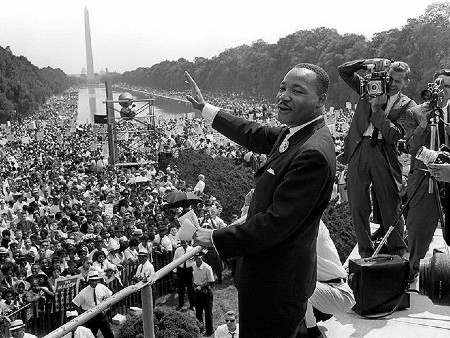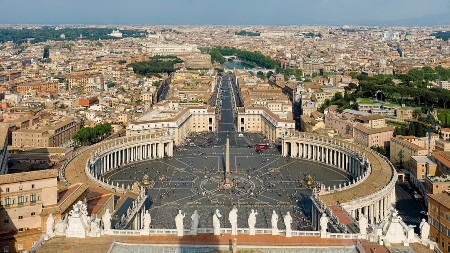 Dear readers, Catholic Online was de-platformed by Shopify for our pro-life beliefs. They shut down our Catholic Online, Catholic Online School, Prayer Candles, and Catholic Online Learning Resources—essential faith tools serving over 1.4 million students and millions of families worldwide. Our founders, now in their 70's, just gave their entire life savings to protect this mission. But fewer than 2% of readers donate. If everyone gave just $5, the cost of a coffee, we could rebuild stronger and keep Catholic education free for all. Stand with us in faith. Thank you. Help Now >
Dear readers, Catholic Online was de-platformed by Shopify for our pro-life beliefs. They shut down our Catholic Online, Catholic Online School, Prayer Candles, and Catholic Online Learning Resources—essential faith tools serving over 1.4 million students and millions of families worldwide. Our founders, now in their 70's, just gave their entire life savings to protect this mission. But fewer than 2% of readers donate. If everyone gave just $5, the cost of a coffee, we could rebuild stronger and keep Catholic education free for all. Stand with us in faith. Thank you. Help Now >
Archbishop Niederauer: 'Moving Forward Together'
FREE Catholic Classes
Catholic bishops have a responsibility to teach the faith, and our beliefs about marriage and family are part of this faith.
Highlights
Catholic San Francisco (www.catholic-sf.org)
12/5/2008 (1 decade ago)
Published in Politics & Policy
San Francisco (Catholic San Francisco) - Proposition 8 on November's ballot added fourteen words to the Constitution of the State of California: "Only marriage between a man and a woman is valid or recognized in California." In the weeks since the adoption of this amendment the media have carried many speculations about the role of the Catholic bishops in California, and about my role in particular, in the passage of this proposition. It is my wish to clarify here what was done and why it was done, and offer some thoughts about the way forward amid so many misunderstandings and hard feelings.
Five years before my appointment as Archbishop of San Francisco, in the year 2000, Proposition 22 was placed on the California ballot. This statute, which defined marriage as between a man and a woman, passed with 61% of the vote. On May 15th of this year, the California State Supreme Court declared that statute unconstitutional and legalized same-sex marriage in California. Around the same time, Proposition 8, a constitutional amendment qualified for the ballot.
The Catholic bishops of California, organized as the California Catholic Conference, and speaking through their office of public policy in Sacramento, endorsed Proposition 8 and urged Catholics, and organizations of lay Catholics, to work for its passage, by means of grass roots activity and contributions from their resources. We bishops also endorsed Proposition 4, regarding parental notification of a minor child's intended abortion (defeated at the polls) and we opposed Proposition 6, a "tough on crime" initiative inconsistent with the principles of restorative justice (defeated).
The Archdiocese of San Francisco did not donate or transfer any Archdiocesan funds to the campaign in favor of Proposition 8. As far as I know, that is also true of other Catholic dioceses in California. The Archdiocese did pay, and appropriately disclose, printing and distribution of flyers to parishes.
Last May the staff of the Conference office informed me that leaders and members of the Church of Jesus Christ of Latter-day Saints (the Mormons) had given their support to the campaign for Proposition 22 in the year 2000, and were already considering an involvement in connection with Proposition 8. Accordingly, I was asked to contact leaders of the LDS Church whom I had come to know during my eleven years as Bishop of Salt Lake City, to ask them to cooperate again, in this election cycle. I did write to them and they urged the members of their Church, especially those in California, to become involved.
It is important to point out here that a wide range of churches became active in favor of Proposition 8: in addition to Catholics and LDS members, evangelical Protestant churches and churches with many African-American members joined the effort, and, among the Orthodox churches, the Greek Orthodox Metropolitan of San Francisco and three other Orthodox bishops signed and published a joint statement in favor of Proposition 8.
That is what was done. Why was it done? Some voices in the wider community declare that there could be only one motive: hatred, prejudice and bigotry against gays, along with a determination to discriminate against them and deny them their civil rights. That is not so. The churches that worked in favor of Proposition 8 did so because of their belief that the traditional understanding and definition of marriage is in need of defense and support, and not in need of being re-designed or re-configured.
Some of our opponents respond with this question: Even if these churches saw the California State Supreme Court decision in May as damaging to the institution of marriage as they understood and valued it, shouldn't they have kept quiet and stayed on the sidelines? Some would say that, in light of the separation of church and state, churches should remain silent about any political matter. However, religious leaders in America have the constitutional right to speak out on issues of public policy. Catholic bishops, specifically, also have a responsibility to teach the faith, and our beliefs about marriage and family are part of this faith.
Indeed, to insist that citizens be silent about their religious beliefs when they are participating in the public square is to go against the constant American political tradition. Such a gag order would have silenced many abolitionists in the nineteenth century and many civil rights advocates in the twentieth. Quite a number of important political issues regularly touch upon the ethical, moral, and religious convictions of citizens: immigration policy, the death penalty, torture of prisoners, abortion, euthanasia, and the right to health care are some such issues.
Members of churches who supported Proposition 8 sincerely believe that defining marriage as only between a man and a woman is one such issue. They see marriage and the family as the basic building blocks of human society, existing before government and not created by it. Marriage is for us the ideal relationship between a man and woman, in which, through their unique sexual complementarity, the spouses offer themselves to God as co-creators of new human persons, a father and mother giving them life and enabling them to thrive in the family setting.
Are there many instances in which this ideal fails to be realized? Of course there are. Single parents, grandparents, foster parents and others deserve praise and support for their courage, sacrifice and devotion in raising the children for whom they are responsible. Still, the proponents of Proposition 8 subscribe to a definition of marriage that recognizes and protects its potential to create and nurture new human life, not merely a contract for the benefit of a relationship between adults.
Whatever others may say, the proponents of Proposition 8 supported it as a defense of the traditional understanding and definition of marriage, not as an attack on any group, or as an attempt to deprive others of their civil rights. The fact remains that, under California law, after the passage of Proposition 8, same sex couples who register as domestic partners will continue to have "the same rights, protections and benefits" as married couples. Proposition 8 simply recognizes that there is a difference between traditional marriage and a same sex partnership.
What is the way forward for all of us together? Even though we supporters of Proposition 8 did not intend to hurt or offend our opponents, still many of them, especially in the gay community, feel hurt and offended. What is to be done?
Tolerance, respect, and trust are always two-way streets, and tolerance respect and trust often do not include agreement, or even approval. We need to be able to disagree without being disagreeable. We need to stop talking as if we are experts on the real motives of people with whom we have never even spoken. We need to stop hurling names like "bigot" and "pervert" at each other. And we need to stop it now.
For our part, we churchgoers need to speak and act out of the truth that all people are God's children and are unconditionally loved by God. While we argue among ourselves, the people who need our help with hunger, unemployment, homelessness and other problems wait for us to turn together toward them. More particularly, we Catholics in the Archdiocese of San Francisco need to minister to the needs of all Catholics in this local Church. Whoever they are, and whatever their circumstances, their spiritual and pastoral rights should be respected, together with their membership in the Church. In that spirit, with God's grace and much prayer, perhaps we can all move forward together.
---
This story was made available to Catholic Online by permission of Catholic San Francisco (www.catholic-sf.org),official newspaper of the Archdiocese of San Francisco, Calif.
Join the Movement
When you sign up below, you don't just join an email list - you're joining an entire movement for Free world class Catholic education.

-

-
Mysteries of the Rosary
-
St. Faustina Kowalska
-
Litany of the Blessed Virgin Mary
-
Saint of the Day for Wednesday, Oct 4th, 2023
-
Popular Saints
-
St. Francis of Assisi
-
Bible
-
Female / Women Saints
-
7 Morning Prayers you need to get your day started with God
-
Litany of the Blessed Virgin Mary
Daily Catholic
 Daily Readings for Thursday, January 16, 2025
Daily Readings for Thursday, January 16, 2025 St. Fursey: Saint of the Day for Thursday, January 16, 2025
St. Fursey: Saint of the Day for Thursday, January 16, 2025 Prayer for a Blessing on the New Year: Prayer of the Day for Tuesday, December 31, 2024
Prayer for a Blessing on the New Year: Prayer of the Day for Tuesday, December 31, 2024- Daily Readings for Wednesday, January 15, 2025
- St. Paul the Hermit: Saint of the Day for Wednesday, January 15, 2025
- St. Theresa of the Child Jesus: Prayer of the Day for Monday, December 30, 2024
![]()
Copyright 2024 Catholic Online. All materials contained on this site, whether written, audible or visual are the exclusive property of Catholic Online and are protected under U.S. and International copyright laws, © Copyright 2024 Catholic Online. Any unauthorized use, without prior written consent of Catholic Online is strictly forbidden and prohibited.
Catholic Online is a Project of Your Catholic Voice Foundation, a Not-for-Profit Corporation. Your Catholic Voice Foundation has been granted a recognition of tax exemption under Section 501(c)(3) of the Internal Revenue Code. Federal Tax Identification Number: 81-0596847. Your gift is tax-deductible as allowed by law.







 Daily Readings for Thursday, January 16, 2025
Daily Readings for Thursday, January 16, 2025 St. Fursey: Saint of the Day for Thursday, January 16, 2025
St. Fursey: Saint of the Day for Thursday, January 16, 2025 Prayer for a Blessing on the New Year: Prayer of the Day for Tuesday, December 31, 2024
Prayer for a Blessing on the New Year: Prayer of the Day for Tuesday, December 31, 2024

